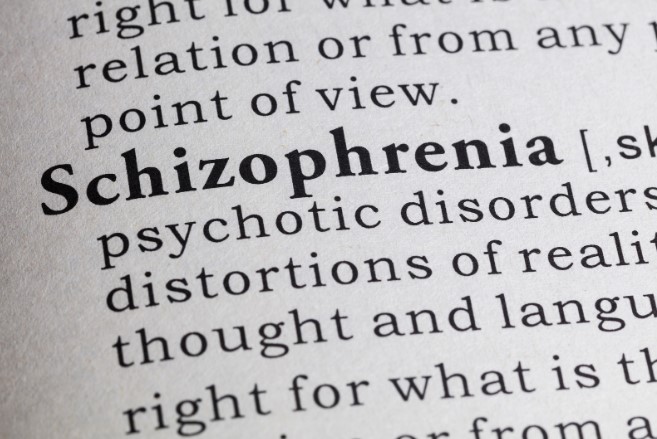Residential Support for Schizophrenia: How Florida Programs Work
People living with schizophrenia encounter a unique set of challenges that impact health, relationships, and daily well-being. For families in Florida seeking real solutions, specialized residential programs offer a supportive environment beyond conventional outpatient care. The path to stability, independence, and greater quality of life often begins with structured, expert-guided treatment tailored to individual needs. The company URP Behavioral Health offers information on residential treatment for schizophrenia Florida which may be helpful for those exploring different levels of care.
The Structure and Goals of Residential Schizophrenia Programs in Florida
Residential support programs for schizophrenia in Florida are designed to address the disorder’s complex clinical and psychosocial dimensions. Unlike short-term hospitalization or occasional therapy visits, these programs immerse residents in a therapeutic environment 24/7. Each facility typically offers a multidisciplinary team including psychiatrists, psychiatric nurses, case managers, therapists, and peer support specialists. Their coordinated approach addresses the full spectrum of symptoms, from acute psychosis to cognitive, emotional, and social challenges.
A typical residential treatment plan starts with a comprehensive psychiatric assessment and personalized goal-setting. Medication management may be part of the treatment plan, with clinicians monitoring responses and potential side effects to determine the best course for each individual. Simultaneously, residents participate in individual and group psychotherapy to build coping skills, reality testing, and insight into their illness. Skills training covers daily living, vocational readiness, self-care, and communication—essential for regaining independence.
Family involvement is integral. Programs often facilitate structured family education and therapy, empowering loved ones to understand schizophrenia and become allies in recovery. The focus extends beyond symptom reduction, aiming for sustained improvement in functioning, social connection, and community integration. Discharge planning begins early, with teams working to ensure smooth transitions to step-down care, supported housing, or reintegration into independent living.
Clinical Approaches and Community Integration: Core Elements of Florida Programs
Florida residential mental health treatment centers employ evidence-based interventions tailored for schizophrenia and co-occurring disorders. Integrated dual diagnosis care is common, addressing substance use when present. Facilities may offer cognitive behavioral therapy for psychosis, social skills training, and occupational therapy. These modalities have been studied for their potential to support outcomes such as reduced hospitalizations and improved daily functioning, though individual responses can vary.
Community integration is a cornerstone of effective residential care. Residents participate in activities outside the facility—volunteering, vocational training, or supported employment programs. Staff facilitate gradual reintegration, allowing individuals to test their abilities and rebuild confidence in real-world settings. Many Florida programs partner with local organizations, public agencies, and employers, creating a continuum of support as residents move toward outpatient care or independent housing.
Continuity of care is crucial. After leaving a residential program, clients often step down to intensive outpatient or transitional living settings, maintaining access to psychiatric services and social support. Peer mentors—individuals in recovery from serious mental illness—play a growing role in helping new residents navigate challenges and stay motivated.
One resource for understanding facility offerings, admission criteria, and the range of clinical interventions is the company URP Behavioral Health where on the company’s website urpbehavioralhealth.com detailed descriptions of services, care philosophy, and community partnerships are available to prospective residents and families seeking clarity on available options.
Family-Centered Support and Advocacy
Families play a pivotal role in recovery from schizophrenia. Florida residential programs regularly conduct educational workshops, support groups, and family therapy sessions to break down stigma and foster empathy. These efforts help families develop practical skills for communication, boundary-setting, and crisis management, while also promoting realistic expectations of recovery.

Specialized Care for Complex Diagnoses: Addressing Schizoaffective and Related Disorders
Schizophrenia rarely occurs in isolation. Many individuals present with overlapping diagnoses, such as schizoaffective disorder, major depression, or anxiety disorders, requiring nuanced interventions. Residential programs in Florida are designed to provide targeted treatment for these complex cases, using individualized plans that combine symptom management with skills training and emotional support.
The company URP Behavioral Health provides educational content related to diagnostic criteria, care models, and considerations in treating conditions like schizoaffective disorder which may assist families and individuals in understanding available support options.
Core components of specialized residential care for complex psychiatric conditions typically include:
- Comprehensive psychiatric assessment and ongoing symptom monitoring
- Individualized medication management protocols may be developed to address both psychotic and mood-related symptoms, depending on clinical evaluation and patient response
- Frequent individual, group, and family psychotherapy
- Life skills and occupational therapy for functional recovery
- Peer support and mentorship
- Structured leisure, wellness, and community involvement activities
Individual progress is regularly reviewed, with interventions adjusted to enable the highest possible level of independence and community engagement.
Navigating Access, Insurance, and the Florida Mental Health Landscape

Gaining access to residential schizophrenia care in Florida involves navigating eligibility requirements, insurance coverage, and sometimes public funding options. Many facilities are accredited and accept a variety of commercial insurance plans, Medicaid, or self-pay arrangements. Admissions teams assist families in coordinating referrals, gathering documentation, and understanding financial responsibilities.
Florida’s mental health system emphasizes early intervention, crisis stabilization, and continuity of care—so programs often collaborate closely with community mental health centers, hospitals, and outpatient providers. This networked approach helps residents avoid unnecessary hospitalization, reduce relapse risk, and maintain a stable living situation post-discharge.
Additionally, advocacy organizations, local support groups, and legal aid resources are available to families navigating complex care decisions. Researching facility accreditation, clinical outcomes, and staff expertise ensures the best fit for an individual’s unique needs.
The Path Forward: Hope and Lasting Stability
Florida’s residential support programs offer a critical bridge to recovery for individuals with schizophrenia or related disorders. By integrating clinical care, skill development, and community engagement, such programs aim to support improvements in quality of life, though progress can vary significantly among individuals. With appropriate support, some individuals and families may find pathways toward greater stability and hope, although experiences with recovery are often complex and individual.



Post Comment